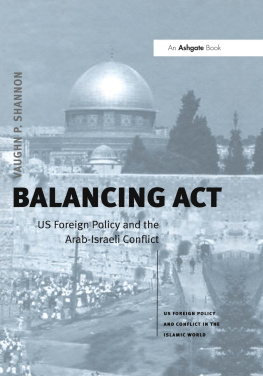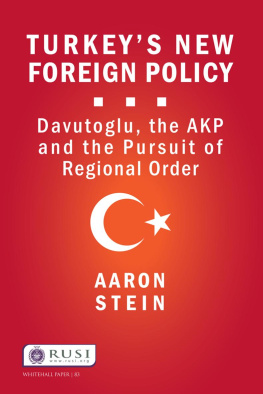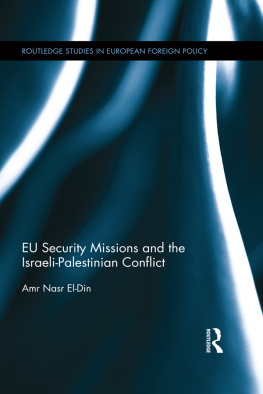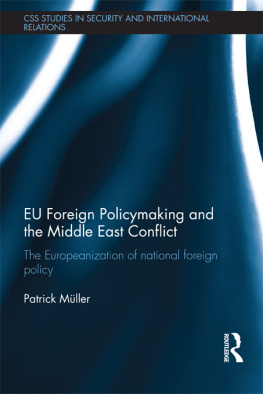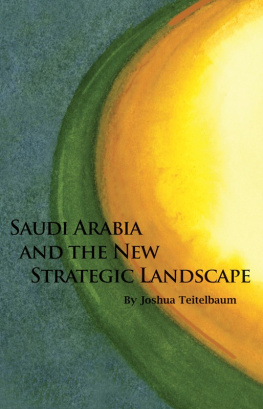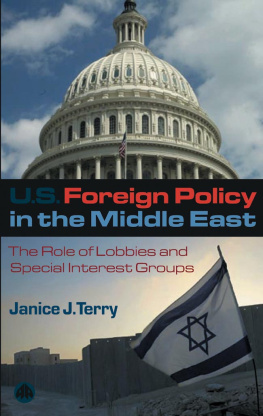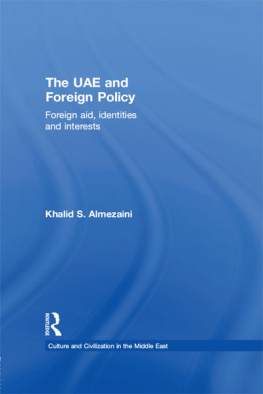BALANCING ACT
US Foreign Policy and Conflict in the Islamic World Series
Series Editors:
Tom Lansford
University of Southern Mississippi, USA
Jack Kalpakian
Al Akhawayn University, Morocco
The proliferation of an anti-US ideology among radicalized Islamic groups has emerged as one of the most significant security concerns for the United States and contemporary global relations in the wake of the end of the Cold War. The terrorist attacks of September 11, 2001 demonstrated the danger posed by Islamic extremists to US domestic and foreign interests. Through a wealth of case studies this new series examines the role that US foreign policy has played in exacerbating or ameliorating hostilities among and within Muslim nations as a means of exploring the rise in tension between some Islamic groups and the West. The series provides an interdisciplinary framework of analysis which, transcending traditional, narrow modes of inquiry, permits a comprehensive examination of US foreign policy in the context of the Islamic world.
Other titles in the series
US-Indonesian Hegemonic Bargaining Strength of Weakness
Timo Kivimki
ISBN 0 7546 3686 0
A Bitter Harvest US Foreign Policy and Afghanistan
Tom Lansford
ISBN 0 7546 3615 1
Balancing Act
US Foreign Policy and the Arab-Israeli Conflict
VAUGHN P. SHANNON
Miami University, Oxford, USA
First published 2003 by Ashgate Publishing
Published 2017 by Routledge
2 Park Square, Milton Park, Abingdon, Oxon, 0X14 4RN
52 Vanderbilt Avenue, New York, NY 10017
Routledge is an imprint of the Taylor & Francis Group, an informa business
Copyright Vaughn P. Shannon 2003
Vaughn P. Shannon has asserted his right under the Copyright, Designs and Patents Act, 1988, to be identified as the author of this work.
All rights reserved. No part of this book may be reprinted or reproduced or utilised in any form or by any electronic, mechanical, or other means, now known or hereafter invented, including photocopying and recording, or in any information storage or retrieval system, without permission in writing from the publishers.
Notice:
Product or corporate names may be trademarks or registered trademarks, and are used only for identification and explanation without intent to infringe.
British Library Cataloguing in Publication Data
Shannon, Vaughn P.
Balancing act: US foreign policy and the Arab-Israeli
conflict. - (US foreign policy and conflict in the Islamic
world)
1. Arab-Israeli conflict 2. United States - Foreign relations
- Middle East 3. United States - Foreign relations - 20th
century 4. Middle East - Foreign relations - United States
I.Title
327.7'3'056
Library of Congress Cataloging-in-Publication Data
Shannon, Vaughn P.
Balancing act: US foreign policy and the Arab-Israeli conflict / Vaughn P. Shannon.
p. cm. -- (US foreign policy and conflict in the Islamic world)
Includes bibliographical references and index.
ISBN 0-7546-3591-0
1. Middle East--Foreign relations--United States. 2. United States--Foreign relations--Middle East. 3. Arab-Israeli conflict. I. Title. II. Series.
DS63.2.U5S365 2003
956.04--dc21
2002043981
ISBN 13: 978-0-7546-3591-8 (hbk)
If people agree on nothing else with regard to the Arab-Israeli conflict, all can agree that it is a touchy, hotly contested issue. Any attempt to explain and write about it, invites the possibility of generating emotionally charged challenge, denial, or resentment from some member on the political spectrum. In class, I have been called pro-Israel and pro-Palestinian often within the same lecture. I take as comfort a quip I once heard, that if you are pleasing nobody, you must have it just about right.
I have conducted a review and analysis of US foreign policy toward the Arab-Israeli conflict amidst interesting times. A year into the war on terror following the dreadful terrorist attacks of 11 September 2001, the US is engaged in a network of activities to respond to the actions of al Qaeda and those who support the organization. US immersion in the Middle East is extensive, a relationship begun really only since World War II, and which has been intensified in the post-Cold War era. Finally, this is also a time when the so-called peace process between Israelis and Palestinians has ground to a halt amidst mutual distrust and cycles of violence.
Yet the general American public is largely unaware of the policy its leaders have carried out over the years regarding Israel and the Middle East. 9/11 may have been a turning point, for Americans are beginning to ask questions, such as the now familiar why do they hate us, referring to the Islamic world. Some of the answer rests with fundamentalist anti-American indoctrination in Middle East madrassas, unrelated to policy concerns. Others resent American power projection in the region, and the relationship built with regimes of dubious legitimacy, lacking the elements of democracy and human rights the US espouses with such persuasion against its enemies. This creates a perceived double standard, usually at the expense of everyday Muslims and Arabs in the region. When not coddling dictators but challenging them, as with Iraq since 1991, there is resentment for the means of isolating the likes of Saddam Hussein, with sanctions that disproportionately hurt everyday citizens without affecting the regime in power.
Another piece of the pie, though, concerns perceived American bias toward Israel at the expense of the Palestinian people, amidst a sustained military occupation of West Bank and Gaza. Israel views this act as (perhaps regrettable but) necessary for the security and self-defense of the tiny country surrounded by hostile neighbors and terrorist subversion. The Israeli views Gaza and West Bank as legally unallocated territory whose status has yet to be determined. Much of the world disagrees, having voiced in numerous resolutions condemnation of Israels occupation as an illegal violation of international law and the Fourth Geneva Convention prohibiting territorial gain by conquest.
Time after time the US has taken Israels side, vetoing condemnatory resolutions, and sitting in the vast minority (often alone) in similar votes in the General Assembly. Neither has the US shown a willingness to pressure Israel to withdraw, preferring the Israeli view that all things (including the end to occupation) be settled by negotiationswhile not demanding any timetable. And so the conflict drags on, and Israeli civilians suffer terrorism, and Palestinian civilians suffer permanent martial law, mistreatment, and occupation. Thus far Americans have been relatively unaware of these things the rest of the world knows so well. But people are awakening, and asking questions. I hope for this book to contribute to the emerging dialogue on this complex relationship in a complex conflict.
This book seeks to describe and explain how the US has attempted to play the part of neutral, even-handed mediator, as well as how it has framed successive crises and problems in a manner that tends to give the Israeli view of things the benefit of the doubt. I was surprised in my research how time and again this pattern recurs: the US declares a balanced approach, attempting to straddle Israeli and Arab sensitivities, only to end up taking the Israeli position in the end. There are exceptions, we shall see, usually in Republican administrations, but they stand out by virtue of their rarity. Part of my analysis includes the consequences of this attempt at balance for the US and the region.

